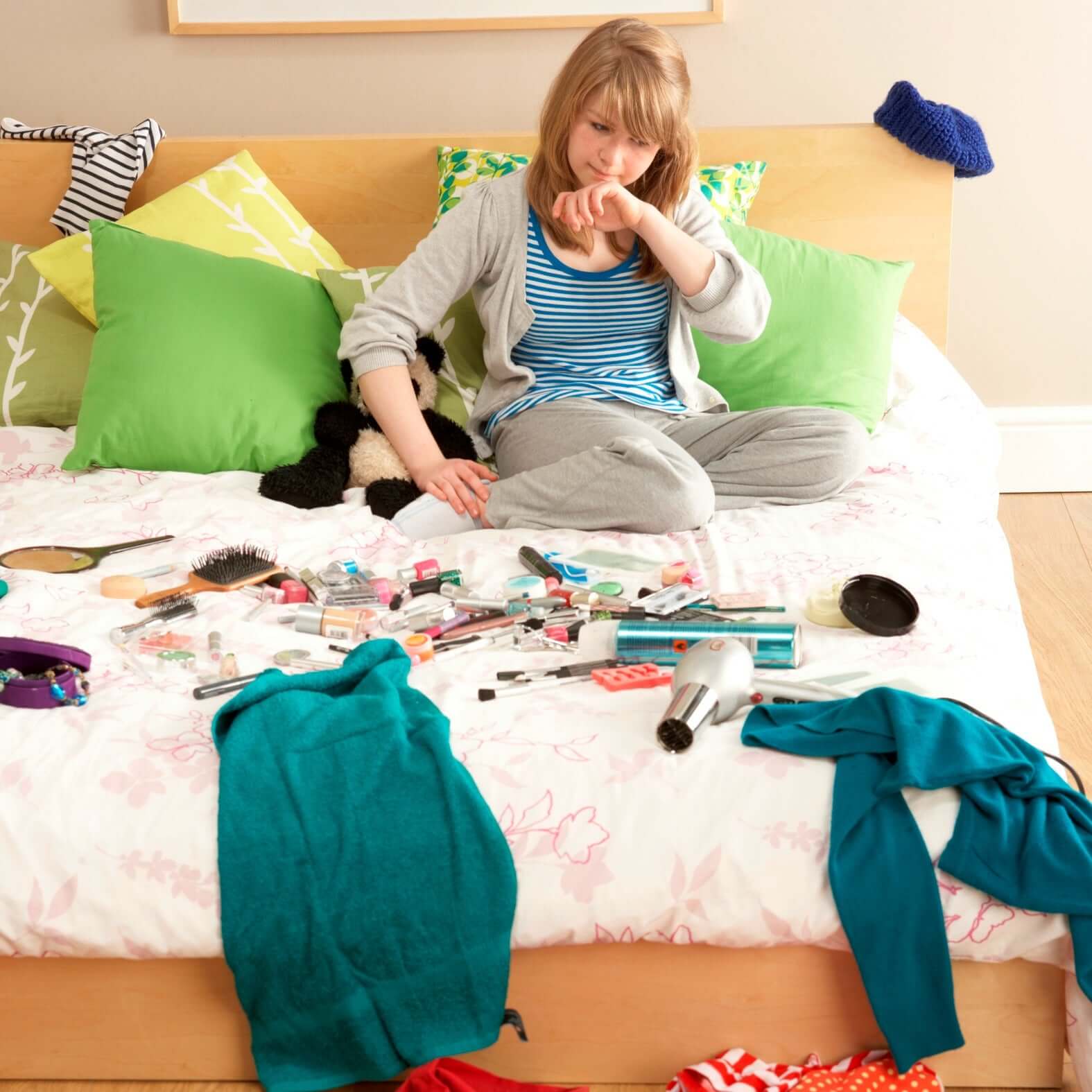It’s time to reorganize your bedroom for better sleep!
The laundry’s piled up, books you meant to read, last week’s attempt to reorganize – they’re all in heaps on the floor. It’s a likely scenario in our bedrooms during our most busy times, or perhaps like my previous roomie, all the time. If you’re anything like me, clutter drives you nuts until you have the time to clean it up. But, if you’re like my roommate, clutter won’t bother you and it’s more likely to increase before you make the time to clean it up.
Your bedroom is meant to be a sanctuary where you recharge your battery, rejuvenate your spirit and find yourself at peace before falling sweetly into the depths of dreamland. No matter how you feel about a messy room, if clutter creates stress or buzzes in the background like an annoying fly in your ear, does bedroom chaos affect your ability to get a healthy night’s sleep?
When you’re surrounded by a mess, you may be able to ignore it, but your brain will always register its surroundings. On a subconscious level, your brain will believe it needs to complete a task, such as sort laundry or clear away piles of books. When you finally get around to clearing away the clutter, your brain is finally able to relax, release tension and allow you to enjoy a more restful night’s sleep.
Begin and the rest is easy
The hard part of organizing a messy bedroom is knowing where to begin. The task can be daunting but with a few helpful hints, you can enjoy a fresh, clutter-free – and sleep-optimized –bedroom in no time.
- Make a plan – Break down tasks into smaller more manageable steps so the job isn’t as overwhelming.
- Make piles – Separate your stuff into 3 piles: things to keep, things to give away and things to toss.
- Ask for help – An extra set of hands makes the job go much faster and a friend can offer a sober second thought when deciding what to toss and what to keep.
- Get rid of the big stuff – Larger pieces of furniture can add to the chaos. If you want to minimize your need for larger items such as dressers, reorganize your closet to hold more items or hang a shelf next to your bed to replace a bulky night stand.
- Donate or toss the same day – Whether you’re donate your clutter or tossing it in the trash, do it the same day and you’ll immediately feel freer and more relaxed in your room.
- Reward yourself – After a successful day of consolidating and purging, reward yourself with some new artwork or a new outfit. Although the best reward will be getting a great night’s sleep!
Declutter your room and your brain
Sometimes what clutters your bedroom and your brain isn’t always a mess. Your environment as a whole can affect how well your brain is able to relax itself. Consider these forms of clutter that could be clogging your room and brain before sleep.
Electronic devices – The screens of our computers, phones, tablets and TV’s emit a blue light that can activate the brain, making it more difficult to fall asleep. Try shutting down technology at least 30 minutes before bed and not leaving a device on the nightstand next to you. If you must sleep with it beside you, put it on silent and set it to only accept calls from certain numbers during your sleep time.
Artwork and photos – Some artwork and photos can be intense and activate your brain rather than calm it down. Decorating with soothing, soft colors and peaceful scenes create a calming and inviting sleeping environment.
Messy spaces – We can’t possibly keep everything neat all the time, but keeping the floor and surfaces as clear as possible can go a long way. Simple ways to limit clutter in your bedroom could include using a laundry hamper or implementing a designated junk drawer to place items you don’t have a place for yet. I like to use the 30 mins after turning off my TV to tidy up before bed.
Light clutter – The sun and moon are beautiful but can be a hindrance on your ability to sleep. Before bed or a nap, close your blinds or curtains. Investing in black-out curtains can help eliminate any light creeping in. Another suggestion would be to install a dimmer switch to create softer and more calming lighting. Switching over to a softer light a half hour to an hour before bed helps your brain prepare for slumber.
Noise clutter – Noise is an obvious obstruction to sleep, but not all noise is bad. Investing in a sound machine (think of it as white noise or noise-cancelling) can help drown out the dripping sink, car alarms or a loud neighbor. Other alternatives would be ear plugs or an insulating curtain over the windows.


